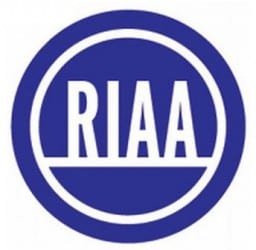Professor Sues Cheating Student for Copyright Infringement

Yesterday, a report by Scott Schwebke at the Orange Country Register highlighted a lawsuit filed by Chapman University processor David Berkovitz, who has filed a lawsuit against a John Doe student that he accuses of posting questions from his exam online.
According to the lawsuit, during the spring 2021 semester Berkovitz was teaching a Business 215 class, during which he gave both a midterm and a final exam to the students. However, one student posted questions from those exams on the website Course Hero in an attempt to solicit answers to them.
Chapman University, for their part, is not involved in the lawsuit, but a spokesperson for the school made it clear that instructors hold the copyright in their work and are free to take whatever action they see necessary to protect their creations.
A lawyer representing Berkovitz said that the plan is to subpoena Course Hero in a bid to unmask the uploader. In the meantime, the defendant of the lawsuit is listed as “John Doe”.
Course Hero states that it has a policy to not tolerate copyright infringement. However, the posts in question are still available on the site. It is unclear if Berkovitz filed a Digital Millennium Copyright Act (DMCA) takedown notice against the works or not.
The lawsuit comes at a time when homework helper sites, like Course Hero, are facing greater scrutiny, both inside and outside the legal system. Meanwhile, teachers are struggling to reduce or prevent cheating in the classroom.
Increasingly, those efforts are turning to copyright as a tool that can allow schools and their instructors to fight back against suspected cheaters.
Using Copyright to Prevent Cheating
The idea of using copyright to address “homework helper” websites is not a new one.
At the 2019 International Center for Academic Integrity (ICAI) conference, representatives from Western Governors University (WGU) discussed how they had removed over 18,000 URLs from the web.
That was achieved by combining a custom-built web crawler with a small team dedicated to identifying sites that were hosting tests and other materials. From there, they would file DMCA takedown notices to get the URLs removed.
However, while WGU may be unique in terms of the volume they’ve handled, they are not unique in the approach itself. Many schools, or their instructors, have found that filing DMCA notices to be a simple, if imperfect, way of handling such uploads.
The logic makes sense. Tests, study guides, answer keys and other materials produced by instructors can be protected by copyright. As such, the upload of those materials to a third-party site is an infringement, even if the copyright infringement is not the largest issue.
What makes Berkovitz’s case unique is that he took the extra step of filing a lawsuit. This lawsuit was not a modest step. In addition to the court costs and legal fees, Berkovitz says that he received an expedited registration from the U.S. Copyright Office. Such a registration costs $800 on top of the normal registration fees.
However, the aim, most likely, is not to recoup any financial losses. The stated priority is to unmask the alleged cheater, and then it remains to be seen what direction the lawsuit will take. Likewise, it’s also unclear what action the school will take, as they refused to comment on whether they would target the student for disciplinary action.
Still, it’s a bold strategy and one that has already captured some headlines. However, it’s unlikely to become a new norm. That’s for a simple reason: It doesn’t scale.
The Long-Term Problem

Regardless of the outcome of this particular case, it is highly unlikely that this strategy will become commonplace, let alone the norm.
The reason is this approach doesn’t scale. The costs involved are extremely high, and it’s all in an effort to unmask and stop one alleged cheated.
Unfortunately, this kind of cheating has become extremely prevalent. Any professor with enough students is likely to see many such cases every semester. It’s simply impractical to file lawsuits against all of them.
In that regard, this type of litigation is more akin to the RIAA file sharer lawsuits that began in 2003. In those cases, the RIAA would target end-user file sharers by filing “John Doe” lawsuits and subpoenaing their internet service providers to turn over their identity.
Simply put, the lawsuits were not effective at curbing the tide of file sharing. The RIAA abandoned the approach in 2008 and, though some movie studios do follow a similar approach today, it has been largely abandoned as a tactic.
The RIAA pivoted to other strategies, including working with ISPs to more effectively address the problem on a larger scale.
Similarly, any action moves the needle in this space will require help from the homework helper websites themselves, either by choice or by force.
To that end, some action is already happening. Pearson Education has filed a lawsuit against Chegg over allegations of widespread copyright infringement. Lawsuits such as that one can have major impacts on the sites themselves, which in turn can impact how students use them.
But that’s not to say there are no ways to use the legal system to target individual cheaters. DMCA subpoenas, for example, require much less time, cost and energy to procure and can help unmask alleged infringers.
Though such a process may not scale perfectly, they can be used with much greater regularity to unmask suspected infringers, and in these cases, suspected cheaters. However, they likely won’t provide much help against such sites that are based outside the United States.
Still, it might be an avenue that some schools and instructors may want to explore.
Bottom Line
This story is definitely attention grabbing. A professor suing someone who he believes cheated in his class is a compelling headline and may give other would-be cheaters (in particular in his class) pause to think.
However, this is not a long-term strategy. It doesn’t scale well and the outcome of this is still very much up in the air. We don’t know if Course Hero will fight any subpoena or, if they comply, that they will have anything useful.
Strategies to combat cheating are going to have to work at scale and part of that is going to mean a greater focus on the sites themselves. However, right now, there just isn’t a legal angle for doing that, outside of copyright.
In the end, there’s never going to be a way to eliminate online cheating in classrooms. Much like piracy itself, there will always be an element of it. However, schools and instructors can and should adopt strategies to combat and reduce it.
But those strategies will always be a balancing act, weighing resources required to execute them versus the likely benefits.
With that test in mind, it’s easy to see why suing the cheaters is not the path forward.
Header Image: Tom Arthur, CC BY-SA 2.0, via Wikimedia Commons
Want to Reuse or Republish this Content?
If you want to feature this article in your site, classroom or elsewhere, just let us know! We usually grant permission within 24 hours.
